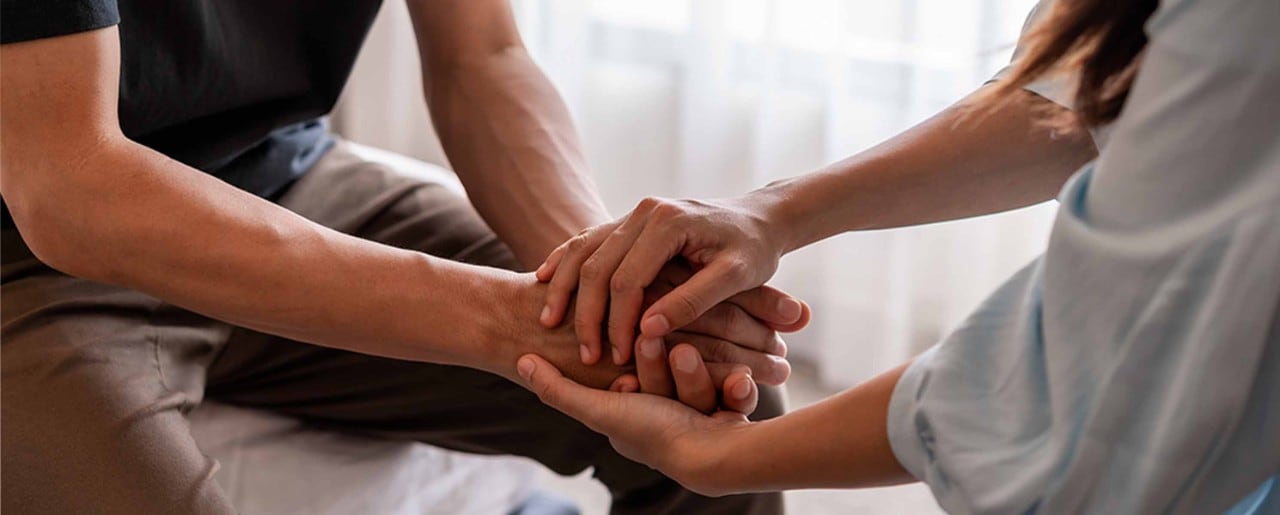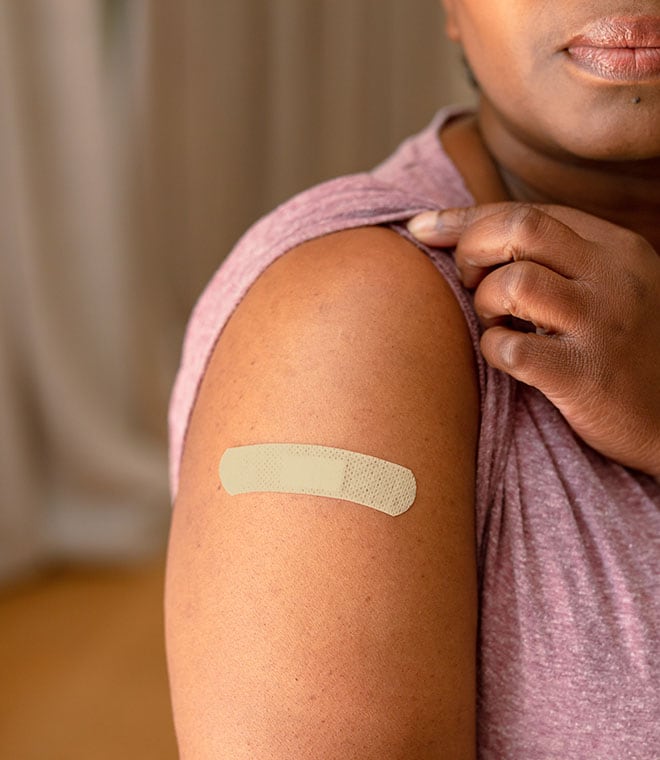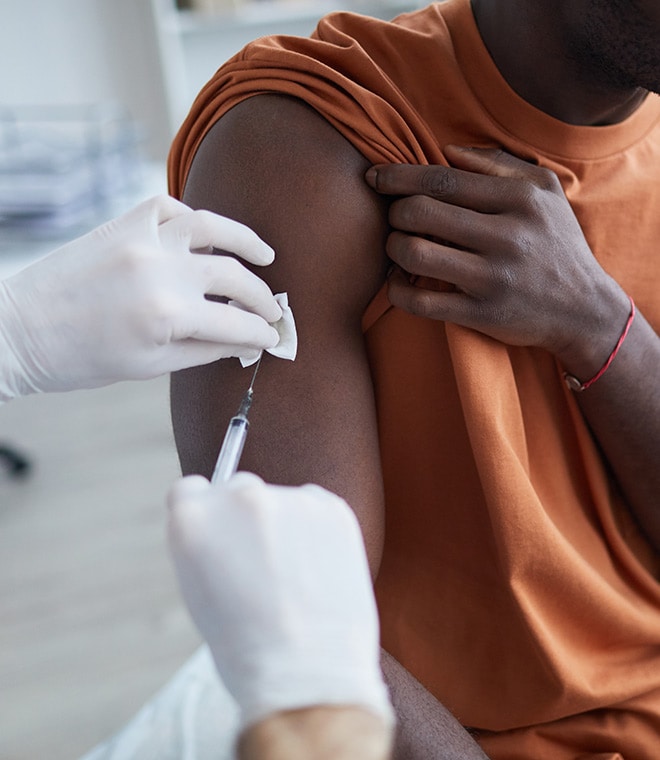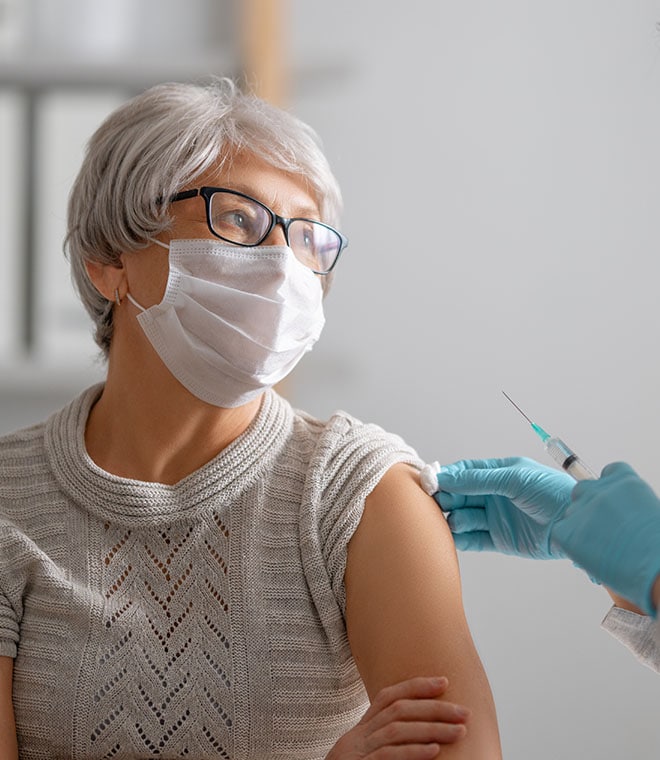Health
Your toughest HIV prevention questions, answered
Clinically reviewed and updated by Alexander Cosimano, PharmD, CSP Feb 14, 2025 • 8 min
When it comes to HIV prevention, you probably know the basics: use condoms, get tested regularly and talk openly with your partners about your status. You’ve likely heard these recommendations many times before. You might also have some understanding of pre-exposure prophylaxis (PrEP), now available as a daily pill or a bimonthly injection, which may help prevent you from contracting HIV.
But for many people at higher risk of HIV, lots of questions remain. For example, if my partner is undetectable, should I still take PrEP? How can I test for HIV at home? And if I’m not on PrEP, how soon after potential exposure should I take post-exposure prophylaxis (PEP), the medication taken after exposure to help prevent you from contracting HIV?
Here are a few answers to some of the most confusing questions surrounding HIV and PrEP.
What's the difference between PrEP and PEP?
Both PrEP and PEP may help prevent you from becoming HIV-positive in the event you are exposed to HIV, but they are very different in nature.
PrEP stands for pre-exposure prophylaxis. As the name suggests, PrEP is medication you take on an ongoing basis so that if you come into contact with HIV, you’re less likely to become HIV positive. There are two forms of PrEP approved by the FDA: a daily pill taken at the same time each day or an injection administered by your prescriber every other month after the first two doses, given a month apart.
PEP stands for post-exposure prophylaxis. PEP is taken in emergency situations when you’ve potentially been exposed to HIV. PEP is usually given as a combination of once daily pills that you must take within 72 hours of exposure to help you avoid getting HIV. You will need to continue the combination daily, around the same time, for 28 days. You must return to your healthcare provider after you finish the full course of medication for an HIV test. Additional testing may also be necessary. You also want to protect your partner by using other HIV prevention methods, such as condoms and not sharing needles, until treatment and retesting are completed. PEP is not the right choice for people potentially exposed to HIV frequently.
How soon can a test detect HIV?
No test can tell you your HIV status right away, and the type of test you have access to determines how quickly HIV can be detected. Most antibody rapid tests and tests done at home can usually detect HIV 23 to 90 days after exposure. A rapid antigen/antibody test done from a finger stick usually detects HIV 18 to 90 days after exposure. An antigen/antibody lab test, using blood drawn from a vein, can usually detect HIV 18 to 45 days after exposure. The most sensitive type of test, a nucleic acid test (NAT), can give you accurate results 10 to 33 days after exposure. However, this type of test is expensive.
If my partner is "undetectable," should I look into using PrEP?
Most people living with HIV now know that if they are taking antiretroviral treatment (ART), it is possible to become undetectable. This means there is such a small level of HIV in the body (viral load), it is no longer seen in HIV tests and cannot be passed to partners through unprotected sex.
If your partner is undetectable, you may choose to take PrEP as an extra precaution, but they cannot pass HIV to you through sexual intercourse. Keep in mind, however, that their undetectable status can change at any time. If someone is undetectable, it is recommended that they test their viral load two to four times per year. Maintain an open dialogue with your partner about their viral load so you can make the best choice for you. Also, keep in mind that PrEP doesn't protect against other STIs, so you may still want to use condoms to protect yourself against diseases like chlamydia and gonorrhea.
Can I test for HIV at home?
Yes, you can test for HIV at home. OraQuick makes a testing kit that you can purchase from your local Walgreens store or online. These at-home tests provide results in as little as 20 minutes. However, if you have a positive HIV test at home or at a community screening event, you should see your healthcare provider for a test to confirm. If you test in a hospital or at a provider’s office, they should automatically run a confirmatory test on the same sample.
Can HIV be prevented with a vaccine?
No, HIV cannot be prevented with a vaccine. Currently, there is no vaccine that can prevent HIV. Scientists continue to work hard on creating a vaccine, but in the meantime, people who have a substantial risk of exposure to HIV can take PrEP as prescribed, and those who have potentially been exposed to HIV can take PEP to reduce their chances of infection.
How can I get PrEP or PEP without insurance?
PrEP and PEP are covered by most health insurance plans, including Medicaid. However, if you don’t have health insurance, or if for some reason your plan doesn’t cover PrEP or PEP, there are ways to get financial assistance.
One option is to check with your Walgreens pharmacist. Talk to an HIV-trained pharmacist at your local Walgreens or call Walgreens Specialty Pharmacy Retail Support Center at 888-782-8443, Monday through Friday 8 a.m. to 10 p.m. ET.
Another option is to apply for assistance through the manufacturer.
Check out the Gilead Advancing Access and ViiVConnect to learn how to apply for assistance with PrEP or PEP.
Planned Parenthood also helps applying for health insurance that covers PrEP.
Even though starting PrEP takes a little research and planning up front, it’s an effective way to help you stay as safe as possible. Talk to your provider, visit your local Walgreens or head to a nearby sexual wellness clinic to speak to a specialist who can help you figure out if PrEP is a good fit for you. If you need PEP, be sure to reach out to a provider as soon as possible to start within the treatment window.
Updated by Alexander Cosimano, PharmD, CSP, February 2025.
Sources:
- https://www.hiv.gov/hiv-basics/hiv-testing/learn-about-hiv-testing/hiv-testing-overview
- https://www.preventionaccess.org/faq
- https://www.hiv.gov/hiv-basics/hiv-prevention/using-hiv-medication-to-reduce-risk/post-exposure-prophylaxis
- https://hivinfo.nih.gov/understanding-hiv/fact-sheets/post-exposure-prophylaxis-pep




